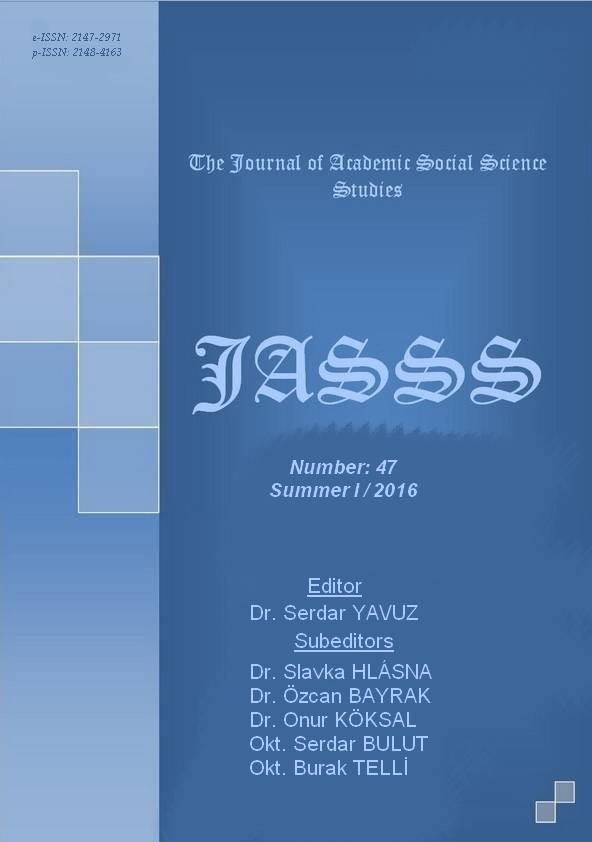Author :
Abstract
On sekizinci yüzyıla gelindiğinde, Osmanlı İmparatorluğu, Batı medeniyetlerinin bilim, sanat, askeri, siyasi vs. alanlardaki gelişmelerinin gerisinde kalmış, bu sebeple çeşitli alanlarda yenileşme çalışmalarına girişmiştir. Her değişim sürecinde olduğu gibi, Osmanlı modernleşme hareketi de seyir olarak sarsıcı ve sancılı bir süreci içermiştir. Toplumsal ve ekonomik sonuçları kadar kültürel boyutlarıyla da yeni davranış kalıplarını halkın pratik yaşamına sokan modernleşme, güzel sanatların özellikle müziğin gelişimini etkilemiştir Bu yenileşme hareketleri içerisinde Mehterhâne kapatılmış yerine ise Cumhurbaşkanlığı Senfoni Orkestrası’nın da temelini oluşturduğuna inanılan, daha modern ve Batılı tarzda bir müzik topluluğu olarak Muzıka-yı Hümayun kurulmuştur. Mehterhanenin yerine getirilen bu kurumla, yani saray ve ordu kanalıyla imparatorluğun çok bileşenli kültür yaşamına resmen dâhil olan Batı müziği, ileride Türk toplum yaşamını çeşitli düzeylerde etkilemiştir. Donizetti ve Guatelli gibi seçkin müzisyenlerin elinde saygın bir kuruma dönüşen Muzıka-yı Hümayun, kurumsal olarak müziğe olan katkılarının yanı sıra, Osmanlı İmparatorluğu’nda müzisyenliğin önem kazanmasında, Türk müzik kültürünün gelişiminde ve Türk toplumunun Batı müziği ile ilişkisinde çok önemli bir yere sahip olmuştur. Muzıka-yı Hümayun, başlarda Osmanlıların Batılı bir monarşi olma mücadelesinin bir yansıması olarak görünse de günümüzde Cumhurbaşkanlığı Senfoni Orkestrası'yla birlikte, kültürel modernleşme projesinin görünürlük kazandığı özgün bir oluşumdur.
Keywords
Abstract
By the beginning of 18th Century Ottoman Empire has stayed behind the Western civilization in the fields of science, art, military etc. and embarked some modernization initiatives in several areas. As always in any transforming period, Ottoman modernization movement has followed a jarring and troublesome path. Modernization understanding caused to change the practical social life of the community with the cultural dimension as well as the communal and economical outcomes, has also effected the improvement of the fine arts particularly the music. Within all those renovation initiatives, the Sultan decided the abolition of the Janissary Bands and changed it with the Imperial Music Academy which is more contemporary and much more western style and at the same time believed it has been a basis of the Presidential Syphony Orchestra in our times. With this institution changed with the Janissary Bands, that is to say by way of Palace and Army, the western music included officially in the imperial multi-componant cultural life has also effected the Turkish communal life at several levels within the following eras. The Imperial Music Academy while transforming to a respectful instution in the hands of distinguished musicians such as Donizetti and Guatelli has had a very important place in gaining a significance of being musician, in improving of the Turkish music culture and the relationship of the Turkish music with the western music besides the contribution to music as an institution. Despite the fact that at the beginning the Imperial Music Academy has perceived as a reflection of the struggle of being a monarchy, for the time being that instution together with the Presidential Syphony Orchestra is a genuine occurence of the cultural modernization project gained apparency.





